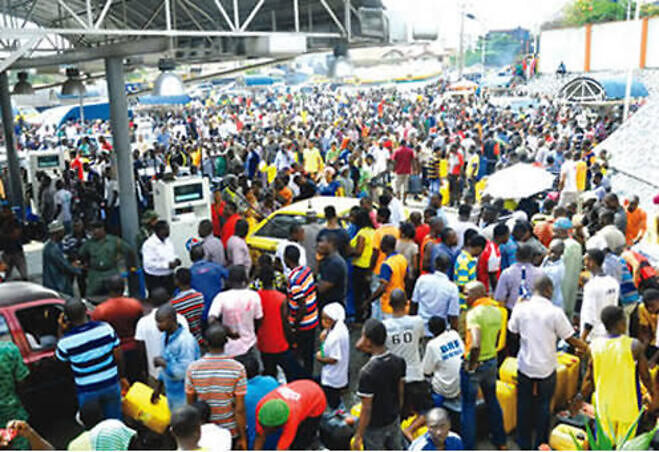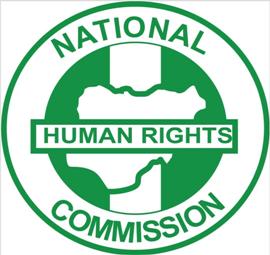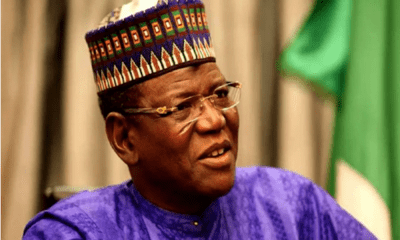Editorial
Insecurity & the call for Mercenaries: A sign of distress the Government must rise to address
As it appears the Nigerian Government is lying handicapped with security forces apparently frustrated and fatigued, recent call for employment of mercenaries to fight the die hard hydra-headed insurgency in the Country has become another call gathering cloud of attractions. Killings in tolls have recently become an albatross sending sense of panic across the Country. As the scourge grows with wider network offsetting the Country, the outcries for intervention have not left out the suggestion of engaging mercenaries to fight the scourge of insurgency in the Country.
Such call has been premised on the apparent loss of bearing on the part of the Government, amidst the frustration and fatigue of security forces. Civil rights advocacy group, the Human Rights Writers Association of Nigeria (HURIWA) had on Monday, the 8th of August, 2022, called on President Muhammadu Buhari, to engage mercenaries to complement military’s fight against terrorists’ onslaught. According to the group, any resistance to such is ‘suicidal.’ This trailed lamentable records of the killing of no less than 750 soldiers in the space of last two years by insurgents.
At a press briefing in Abuja, HURIWA’s national coordinator, Emmanuel Onwubiko, had described as unprecedented the rate at which terrorists of the Boko Haram and Islamic State – West Africa Province kill soldiers in the last two years. The group, therefore, had urged the Federal government to go beyond condemning terrorists’ onslaught against the military and take decisive and quick actions to run all criminal elements out of the nation’s shores. The group had said: “The President as the Commander-In-Chief of the Armed Forces must strategise the anti-terrorism war because apparently, the troops are losing with hundreds of them having had to pay the supreme price in the last two years. A recent report put the figure of soldiers fell by terrorists at 750 soldiers between the third quarter of 2020 and July 2022. This is unacceptable. The President must with immediate effect reshuffle the security architecture and sack the service chiefs whose lack of effective leadership have cost over 750 families their beloved brothers, sisters, and breadwinners. The President must ensure that the morale of the soldiers still alive is boosted through the timely payment of salaries, acquisition of modern-day superior weapons as soldiers in leaked videos have decried the absence of superior firepower to their adversaries, payment of entitlement to families of fallen heroes, amongst others.
“Also, the engagement of foreign mercenaries cannot be over-stressed. As buttressed by the Chairman of the House of Representatives’ Committee on Defence, Babajimi Benson, the Armed Forces are overstretched as they are now engaged in internal security operations which should have been led by the Nigeria Police Force. The deployment of foreign mercenaries is exigent to avoid the further loss of military personnel. Any resistance to this is suicidal. Similarly, the Minister of Police Affairs, Muhammad Dingyadi, had on December 15, 2021 said that the federal government approved a 20 per cent increase in salaries for personnel of the Nigeria Police Force, effective January 2022 but police officers have been crying out that the raise had yet to take effect even eight months after. The President must ensure policemen get the necessary morale booster to fight internal security for soldiers to face Boko Haram and Islamic State in West African Province, ISWAP fighters.
“Also, the federal government must with immediate effect, give licence to regional security outfits in the South-East, the South-West and Benue state for these vigilante men to bear arms to consolidate the operations of the military and the police as the army and the police are overstretched with many attached to Very Important Personalities and politicians instead of securing the country against internal and external threats.”
It is indisputable that the centralisation of control of security forces in the Federation has failed to address localised security menaces. The gap in policing has left behind lacuna which has given ample chance for insecurity threats to grow. As the prevailing security architecture fail to address internal insurrection of insurgency, even with the engagement of the military, it is not out of place that suggestions on the best possible means to address the prevailing challenges would be expected. The call for the engagement of mercenaries to augment efforts of the Nigerian military fighting the scourge of insurgency in the Country, constitute one candid reflection of such. It appears that even from constituted authorities, similar calls have been rolling out recently, as frustration visits offices bearing the burden of leadership in the Country. Such frustration has been particularly expressed by subnational seats, States in particular, which are more or less handicapped over insecurity threats, particularly those amidst the heat of forceful grip of terror scourge. It would be recalled that with the spate of attacks on the State, the Kaduna State Governor, Nasir El-Rufai, had following the March 28, 2022, attack on the Abuja-Kaduna-bound train vowed to, with other State Governors in the Northwest, hire foreign mercenaries to fight against terrorists. According to him, four others of the seven Northwestern State Governors—Katsina, Zamfara, Kebbi, Sokoto—may join him to hire foreign mercenaries if the Federal Government fails in its duty to end the ongoing spate of terror attacks in the region.
El-Rufai who then spoke to State House correspondents after he visited the President Muhammadu Buhari at the Presidential Villa, Abuja, to update him on the happenings since the train attack, was quoted, “Why do we always wait for them to strike before we go after them? Why can’t we go to where they are and kill them? We know where they are. We have the maps as the military knows, the policemen know and everyone knows. The DSS is giving us a report every time: see where Dogo Gide is, see what he is planning. Why is it that up till now, the security operatives has not gone to kill them? Where are our soldiers? Why have they not done it? That is why I have come to see Mr President. And also I have said that if these actions are not taken, it becomes a must for us as governors to take measures to protect our citizens, even if it means we will import mercenaries from outside the country to do it. If our soldiers fail, I swear to God, we will do that.”
The frustrations have appeared too engulfing that only a rejigging of security response to the scourge of insecurity in the Country is much required. The call for engagement of mercenaries may not be out-ruled from the options, but would not certainly in its entirety constitute all that may be needed for a formidable architecture to ravage the network of the hydra and hard headed insecurity scourge which has grown its expansive wings with destabilising forces. Other measures having to do with internal redefinition of the overall orientation of security forces to give overhauling ambience for systemic appeals formidable enough to respond to the prevailing turbulence in the Country, is pertinent. Such redefinition would have to be encompassing in coverage, from the framework of the hard and soft parameters of the security forces, the intelligence base, human resources, the orientation, patterns of operations, and arsenals, among others.
It is indisputable that the shortfalls in the systemic profile of the security forces in the Country is too entangled with strings which grip have been too pronounced to leave behind a debilitated force, now reflecting the fatigue of deepened weaknesses of security architecture which over the years have been left unaddressed.
Now, that the scourge of insecurity in its various expressions have become an albatross melting the fabrics of the Country, the necessity to rejig the framework of the security architecture in the Country is sine qua non. The threats of the scourge have become too pronounced that the Federation itself is threatened. Recent threats of bandits declaring their mission to kidnap the President, Governor of Kaduna State, among other high profile Nigerian public office holders, sound alarm of such threats. Attempts on convoys of key public office holders, including governors recently, reflect how determined and calcified these elements are in their agenda. It would not be out of course to state that the Government, with much emphasis on the central, majorly based on its unreleased embrace on its preserve to controlling the security forces, must wake from the apparent passive disposition to what has become a threat to the existence of the Federation.
Editorial
Fuel scarcity: A national embarrassment that demands lasting solutions


As Nigerians, we have grown all too familiar with the debilitating effects of fuel scarcity. The latest crisis, which has brought transportation to a grinding halt, hiked costs for businesses and citizens, and dashed hopes of a subsidy-free era, is a reminder of our nation’s perennial fuel supply challenges.
The removal of the fuel subsidy, announced by President Bola Tinubu on May 29, 2023, was touted as a panacea to our fuel woes, but alas, we were wrong.
The long queues that have resurfaced at the few functioning filling stations in Abuja and other states are a painful reminder of the dark days when fuel scarcity was the norm rather than the exception.
It is unconscionable that despite the quadrupling of fuel prices, Nigerians are still forced to endure the excruciating pain of fuel queues.
The government’s failure to address the root causes of fuel scarcity has led to a vicious cycle of scarcity, hike in prices, and untold hardship for citizens. It is imperative that the government takes concrete steps to address the issue once and for all.
The current fuel shortage in Nigeria, attributed to logistical issues by the NNPC, is a stark reminder of the government’s chronic failure to address the nation’s energy crisis.
Despite claims of resolved problems, the reality on the ground tells a different story – dry fuel stations, skyrocketing transportation costs, and a citizenry bearing the brunt of this inexcusable crisis.
The government’s explanations ring hollow, rehashing familiar excuses – logistical issues, pipeline vandalism, crude oil theft, and foreign exchange scarcity.
These are not new challenges, yet successive administrations have failed to implement lasting solutions, opting for temporary fixes that inevitably unravel.
It is a national embarrassment that Nigeria, Africa’s largest oil producer and a significant global crude supplier, cannot reliably provide fuel for its citizens and industries.
The country’s four refineries have been in disrepair for decades, operating at a fraction of their capacity or lying moribund. Promises to revamp these critical assets have been made and broken countless times.
While the Dangote Refinery offers hope, it is a private endeavour that should not absolve the government of its responsibility to restore Nigeria’s public refineries to full working condition.
The promises to revive Nigeria’s refineries and depots are mere words until action is taken. The country’s overreliance on a single fuel depot and loading point in Lagos is unsustainable and a recipe for disaster.
The logistical challenges cited by NNPC are symptoms of a deeper problem – a lack of investment in critical infrastructure and a failure to address the root causes of fuel scarcity.
Nigeria must revive its network of 21 dysfunctional depots and repair the vandalised or obsolete pipelines that once served as product distribution arteries.
The threat by independent petroleum marketers to halt supply over unpaid bridging claims totaling N200 billion owed by the government is a crisis compounded by policy inconsistencies, delayed payments, and the broader challenges of operating in an economy plagued by foreign exchange volatility.
The NNPC’s claim of having over 1.5 billion litres of products to last 30 days is a temporary reprieve, but it does not address the structural deficiencies that have made fuel scarcity a recurring nightmare.
Nigeria loses trillions of naira annually to crude oil theft and pipeline vandalism, a hemorrhage that must be stanched through robust security measures and decisive prosecution of perpetrators.
The adoption of alternative crude evacuation systems involving barges and trucks is a pragmatic stopgap, but it should not divert attention from the pressing need to secure and rehabilitate the nation’s critical pipeline infrastructure.
It is time for leadership and action, not just words, to address the fuel scarcity crisis and ensure a stable and sustainable energy future for Nigeria.
But, the military’s Operation Delta Safe has recovered a mere drop in the ocean – four million liters of crude – amidst an ocean of losses. It’s time to confront the elephant in the room: our addiction to fuel scarcity.
Successive governments have peddled empty promises, leaving Nigerians to suffer the consequences.
The Tinubu administration inherits this ticking time bomb and must defuse it with unwavering commitment, innovative solutions, and political will. The fuel crisis is not just an economic issue but a national security imperative, holding our industries, transportation, and households hostage.
Nigeria’s vast oil wealth should be a blessing, not a curse condemning citizens to perpetual hardship. The time for excuses and temporary fixes has passed. Nigerians demand decisive action, transparency, and accountability from their leaders.
They deserve a future where fuel scarcity is a relic of the past, refineries operate at full capacity, and black gold fuels progress, prosperity, and sustainable development.
The fuel crisis is a test of leadership, one that has humbled successive administrations.
President Tinubu must rise to the challenge, marshaling all resources and stakeholders towards a comprehensive strategy that tackles the root causes of this recurring nightmare.
It’s time to break the vicious cycle and unleash a new era of progress and prosperity for Nigeria. The nation’s future depends on it. Will President Tinubu answer the call? Only time will tell.
We demand a comprehensive overhaul of the fuel supply chain, investment in local refining capacity, and a commitment to transparency and accountability in the management of our natural resources.
Nigerians deserve better than the perpetual fuel scarcity that has become a hallmark of our nation’s incompetence.
It is time for our leaders to take responsibility and act with the urgency and decisiveness that this crisis demands. Enough is enough! We demand lasting solutions to this national embarrassment now!
Editorial
Nigeria’s Human Rights conundrum: A call to urgent action


Nigeria’s human rights landscape has long been a cause for concern, but the latest revelation by the National Human Rights Commission (NHRC) paints a particularly dire picture.
The shocking disclosure that 1,580 human rights violations occurred in March 2024 alone is a stark reminder of the precarious state of human rights in our country.
Even more disturbing is the breakdown of these violations, which reveals a disproportionate impact on the North Central region and a troubling involvement of state actors, including the police, military, and DSS.
This crisis of accountability and protection demands urgent attention and action from all stakeholders, and it is our hope that this editorial will contribute to a much-needed national conversation on this critical issue
The most vulnerable members of our society, children, were not spared, with 542 cases of rights violations recorded. Domestic violence, which is becoming increasingly rampant, accounted for 471 cases.
Non-state and private actors were also responsible for 32 and 36 violations, respectively, while three cases of rights violations were recorded against people with disabilities.
The NHRC’s report is a wake-up call to all stakeholders, including the government, civil society organizations, and individuals, to take immediate action to address these violations.
The fact that social, economic, and cultural rights accounted for 157 violations, and referred cases stood at 24, highlights the need for a comprehensive approach to addressing human rights issues in Nigeria.
It exposed 499 killings and kidnappings, 71 violations of the right to life, and 301 school children abducted in Kaduna State alone.
The commission’s Senior Human Rights Adviser, Hilary Ogbonna, revealed these shocking statistics, which include 40 people killed in Benue State and four deaths in Nasarawa State during palliative distribution.
The report highlights a broader pattern of human rights violations, including domestic violence, abductions, and children’s rights abuses. It’s alarming that the right to life is being violated in various ways, and human rights violations are escalating.
This is despite Nigeria’s adoption of the Universal Declaration of Human Rights and over two decades of democratic governance.
The Global Peace Index Report’s ranking of Nigeria as one of the least peaceful countries in the world (144th out of 163) is a damning indictment.
The report emphasises the gravity of human rights abuses in Nigeria, where basic rights like freedom from oppression, participation in decision-making, and access to fundamental needs like food, work, medical care, and education are frequently denied.
However, the Universal Declaration of Human Rights, adopted in 1948, enshrines fundamental rights like freedom from oppression, participation, and access to basic needs.
While many countries, including Nigeria, have incorporated these rights into their constitutions, the reality on the ground is starkly different.
In Nigeria and Africa, people face physical and mental torture, police brutality, domestic violence, kidnappings, and detention without trial.
Since its declaration, it has become fashionable for most countries of the world, Nigeria inclusive, to entrench the catalogue of rights in their constitutions.
But, regrettably, in Nigeria, and indeed Africa, people are usually subjected to physical and mental torture ranging from cases of accidental discharge and other forms of police brutality, domestic violence, kidnappings as well as detention without trial.
Also, insecurity, in its various forms, has become a pervasive issue in Nigeria, manifesting as banditry, kidnapping, terrorism, and communal conflicts. This has resulted in the loss of lives and property, highlighting the government and security forces’ failure to fulfill their social contract with citizens. The lack of remedies for victims, including compensation and access to justice, has further worsened the situation.
The Nigerian Constitution guarantees the right to personal liberty, a fundamental feature of any democratic setting.
However, persistent obstacles, including legislative constraints, societal prejudices, and systemic shortcomings, hinder the full realization of human rights. It is crucial to acknowledge these challenges and work collectively to dismantle them.
The myriad of challenges facing Nigerians includes insecurity, separatist agitations, torture, illegal detention, extortion, and extra-judicial killings by law enforcement agencies.
Limited access to justice, abuse of court process, and disregard for court orders, as well as the increased cost of living and deteriorating living conditions, further hamper citizens’ ability to lead safe and meaningful lives.
Human rights protection plays a critical role in fostering vibrant democracies, promoting social cohesion and diversity, and cultivating a conducive and peaceful living environment.
To address these challenges, we recommend strengthening the independence of the judiciary, press freedom, democratic rules and principles, human rights education, and public vigilance. This will help curtail human rights abuses and promote good governance in Nigeria.
We urge the government, civil society organisations, and individuals to work together to address these pressing issues and ensure that the rights of all Nigerians are respected, protected, and fulfilled.
We also call on civil society organisations and individuals to continue to advocate for human rights and hold those in power accountable for their actions.
We also urge the government to take immediate action to address these violations, investigate and prosecute perpetrators, and implement policies to prevent future abuses. We also call on civil society organisations and individuals to continue advocating for human rights and holding those in power accountable.
The time for change is now. We must work together to ensure that the rights of all Nigerians are respected, protected, and fulfilled.
Editorial
Endless turnaround maintenance of Port Harcourt Refinery


Since 2021 when the turnaround maintenance of the Port Harcourt Refinery started, there have been heaps of failed promises of the production commencement date.
First, it was former Minister of State for Petroleum, Timipre Sylva promising severally of commencement of productions of Port Harcourt Refinery, but these promises never came to limelight till he resigned for political calling.
Next was the Managing Director of Port Harcourt Refinery, Ahmed Dikko who at a time said the turnaround maintenance was 98 percent completed and would have commenced operations in December 2023. That promise again was unfulfilled.
The Group Managing Director of Nigerian National Petroleum Company Limited (NNPC Ltd), Mele Kyari equally said that Port Harcourt Refinery would start production in two weeks time, that elapsed in April, 2024. April has come and gone.
The Head, Corporate Communications of NNPC Ltd, Olufemi Soneye was also quoted to have said that the reason for non-commencement of operations of the Port Harcourt Refinery was regulatory and compliance tests. As it seems, all efforts to restart the operations of the Port Harcourt Refinery and by extension other refineries, have been futile.
Political watchers have adduced poor management, corruption, sabotage and lack of political will as some of the problems confronting smooth operations of our refineries. They particularly accused those benefitting from importation of petroleum products as being responsible for the non-functionality of the four refineries in Nigeria.
Political will, of course, plays a major role in shaping directions the policies go. Political will in this instance translates to good leadership, and in this case, the buck stops at the table of the Federal Government, particularly the President, who doubles as the Minister of Petroleum.
Petroleum being the mainstay of the country’s economy should be given all the attention it deserves. The reason being that virtually everything in the country is tied to the petroleum products situation.
Since the announcement of the removal of fuel subsidy on May 29th, 2023 by President Tinubu on assumption of office, life has not been the same in Nigeria. Cost of living has risen astronomically, consequent upon the hike in price of petroleum products.
In the midst of plenty, courtesy of the abundant human and material resources, Nigeria is still often described as the poverty capital of the world. What an irony! Turnaround maintenance of the refineries subsists without end. Every hope is now placed on the Dangote Refinery, a private outfit. While the diesel price slash is commendable, how on earth will a single private entity take the whole country to Eldorado?
We cannot regulate what we do not produce, this is a natural principle that cannot be contravened. We only pray that Port Harcourt Refinery comes on stream someday.
We look forward to that time. Our position is that Government agencies saddled with the responsibility of providing fuel and other petroleum products to Nigeria must do their work and justify their pay.
This onerous task is mandatory and statutory to them and shall amount to disservice if they fail. Our prayer is not for them to fail, but that they fulfil their vows and make the country great for the overall interest of all.
Tecnimont, the Italian company undertaking the $1.5 billion rehabilitation project of the Port Harcourt Refinery has through its Local Managing Director, Gian Fabio Del Cioppo pledged to fulfil the terms of contract, so as far as we are concerned, there is nothing stopping the country from achieving the target of the turnaround maintenance project.
The only clog would of course be lack of political will, which we know could be cultivated. So let all hands be put on deck to achieve results.
-
capital market2 years ago
Rt.briscoe, FBNH, Others halts negative performance of stock market
-
Finance3 months ago
Court orders Sen. Victor Umeh to repay N136m bank debt to AMCON
-



 Abuja Update2 months ago
Abuja Update2 months agoUNDP, FG partnership needed to achieve inclusion, equity- Minister
-
Abuja Update1 month ago
Banks drive stock market performance with N147bn gain
-



 Business2 weeks ago
Business2 weeks agoTingo Group unveils Tingo Electric, Tingo Cola drink at Lagos launch
-



 Health3 weeks ago
Health3 weeks agoCapacity training will reduce migration of health workers- NPHCDA
-
News4 months ago
Oil thieves sponsoring malicious media campaign against Navy – Spokesman
-



 Infotech1 month ago
Infotech1 month agoWorld Backup Day: NITDA urges Nigerians to ensure backup of data
















